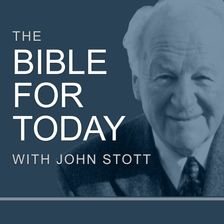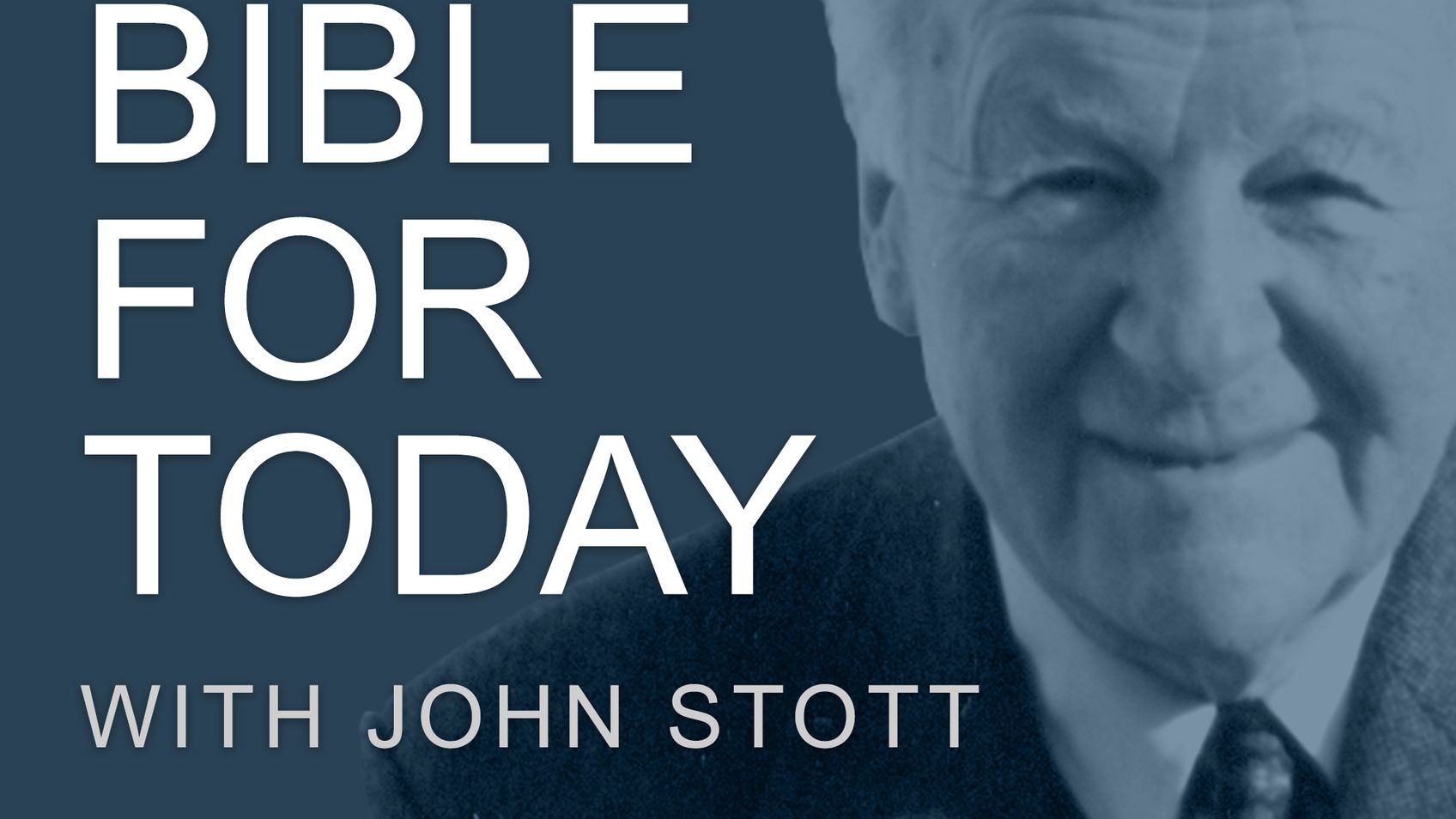The Conscience - Part 2
September 5, 2021

The Bible for Today with John StottPremier
John Stott shows how as Christians we can put the cross of Christ between the devil and our conscience. But he also shows how it is possible to deaden our conscience to what God says which is what is meant by blasphemy against the Holy Spirit.
More From The Bible for Today with John Stott

The Cause of His Death - Part 1
The Bible for Today with John Stott
September 12, 2021
John Stott explains why God cannot simply forgive our misdemeanours, as we would forgive one another, and why it was necessary for Jesus to die for us

The Cause of His Death - Part 2
The Bible for Today with John Stott
September 19, 2021
John Stott takes us to the Last Supper as Jesus explains to His disciples the significance of the bread and wine. John explains what Jesus meant when

Growing In The Prayer Life - Part 1
The Bible for Today with John Stott
September 26, 2021
John Stott explains how praying is the Christian's greatest privilege. He warns us from Scripture how not to pray and encourages us as to how we shoul

The Conscience - Part 1
The Bible for Today with John Stott
August 29, 2021
John Stott shows us that our conscience is what makes us different from the animal kingdom. He explains the place of our conscience in Christian conve

The Mind - Part 2
The Bible for Today with John Stott
August 22, 2021
John Stott shows us how we need to use our minds in order to worship God. He also shows us that using our mind is necessary when we place our faith in

The Mind - Part 1
The Bible for Today with John Stott
August 15, 2021
John Stott explains that the mind is the central citadel of the human personality that directs our human operations. He sets God's purpose for us to t
More on OpenTheo

Why Do We Say Someone Was Saved on a Particular Date If It Was Part of an Eternal Plan?
#STRask
November 24, 2025
Questions about why we say someone was saved on a particular date if it was part of an eternal plan, the Roman Catholic view of the gospel vs. the Bib

Christmas Cranks and Christmas Blessings with Justin Taylor and Collin Hansen
Life and Books and Everything
December 17, 2025
If you are looking for a podcast where three friends talk about whatever they want to talk about and ramble on about sports, books, and grievances, th

Does Open-Mindedness Require Studying Other Religions Before Becoming a Christian?
#STRask
February 9, 2026
Questions about the claim that if Christians really want to be open-minded, they need to read and study other religions before committing to Christian

Life and Ministry in Charlotte and in the SBC with Clint Pressley
Life and Books and Everything
December 15, 2025
In a rare cultural anomaly that may never be repeated in our lifetimes, the current SBC President and current PCA Moderator live in the same neighborh

Why Is It Necessary to Believe Jesus Is God?
#STRask
February 19, 2026
Questions about why it’s necessary to believe Jesus is God, whether belief in the Trinity is required for salvation, and why one has to believe in the

An Invitation to the 2026 Coram Deo Pastors Conference
Life and Books and Everything
February 18, 2026
"I love being a pastor, and I love pastors, which is why I hope you will consider joining us at the Coram Deo Pastors Conference in 2026." —Kevin DeYo

How Can We Know Who Is Teaching the Same Gospel Paul Taught?
#STRask
February 16, 2026
Questions about how we can know who is teaching the same gospel Paul taught, and whether or not Jeremiah 1:5 supports the idea that we pre-existed in

Can Two Logical People Come to Conflicting Conclusions Without Committing a Fallacy?
#STRask
January 8, 2026
Questions about whether two logical people can come to conflicting conclusions on a topic without committing a fallacy, how Greg, as a public figure,

Kingdom Priorities: Following the Teachings of Jesus
Knight & Rose Show
February 14, 2026
Wintery Knight and Desert Rose discuss Jesus' teachings from the Gospels, emphasizing truth, evidence, self-denial, and forgiveness. They explore pass

How Should I Respond to an LGBTQ Person Who Says He Feels Good About Who He Is?
#STRask
March 2, 2026
Questions about responding to an LGBTQ person who says he feels good about who he is, and whether—since we all have sin in our life we don’t consider

Did God Create Us So He Wouldn’t Be Alone?
#STRask
November 3, 2025
Questions about whether God created us so he wouldn’t be alone, what he had before us, and a comparison between the Muslim view of God and the Christi

How Would You Convince Someone That Evil Exists?
#STRask
November 17, 2025
Questions about how to convince someone that evil exists, whether Charlie Kirk’s murder was part of God’s plan, whether that would mean the murderer d

Conservatism and Religious Freedom with John Wilsey
Life and Books and Everything
October 27, 2025
What is conservatism? And why does it go hand in hand with religious freedom? How should we think about the American experiment of ordered liberty? Ha

Could the Writers of Scripture Have Been Influenced by Their Fallen Nature?
#STRask
October 23, 2025
Questions about whether or not it’s reasonable to worry that some of our current doctrines were influenced by the fallen nature of the apostles, and h

Can You Recommend Good Books with More In-Depth Information and Ideas?
#STRask
January 22, 2026
Questions about good books on Christian apologetics, philosophy, and theology with more in-depth information and ideas, and resources to help an intel
